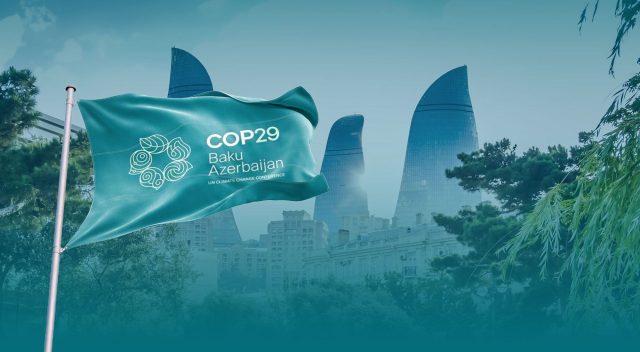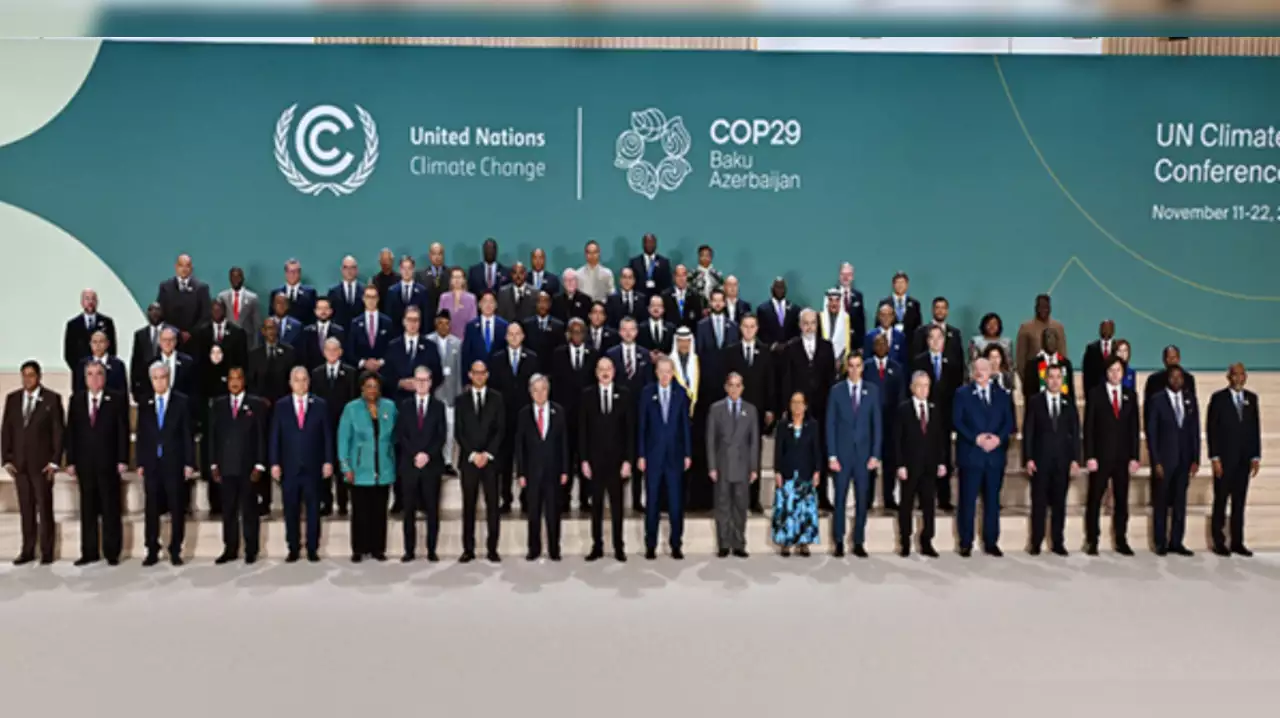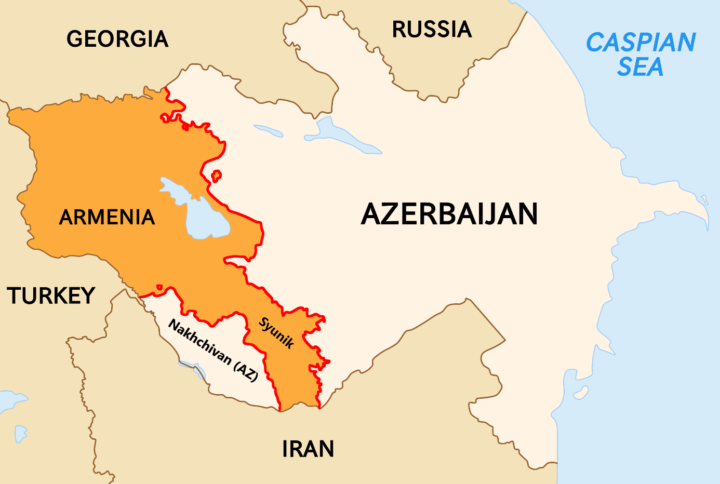
COP29 between innovation and contradictions: what results for the conference held in Azerbaijan?
COP29, officially recognized as the 29th Conference of the Parties to the United Nations Framework Convention on Climate Change (UNFCCC), is currently taking place in the surprising city of Baku, Azerbaijan. This significant international event runs from November 11 to November 22, 2024, and serves as a crucial platform for global dialogue and collaboration on climate action.

Each year, the Conference of the Parties brings together a diverse assembly of representatives from over 200 nations, which includes 197 signatory countries and the European Union. Participants range from government officials, environmental activists, business leaders, and scientists, all united by a common goal: to develop and implement effective strategies and policies aimed at mitigating the impacts of climate change and significantly reducing greenhouse gas emissions.
Since the inception of the UNFCCC during the landmark Earth Summit in Rio de Janeiro in 1992, the conference has evolved into a pivotal forum for negotiating international climate agreements. COP29 continues this legacy, addressing urgent global challenges and advancing collective efforts to combat climate change, foster sustainability, and promote resilience in vulnerable communities around the world. Amidst the backdrop of escalating environmental crises, the decisions made here will play a crucial role in shaping future climate policies and actions globally.
This edition of the Conference is focused on tackling critical challenges related to climate change, particularly emphasizing the financial dimensions of these issues. One of the primary themes of the event will be the establishment of a new collective goal for climate finance, which seeks to mobilize an impressive $1 trillion annually to support the efforts of developing countries in combating climate change.
In addition to this ambitious financial goal, another key theme will center on adaptation strategies. This involves not only enhancing resilience in developing countries but also improving the financial mechanisms that support these initiatives. The conference will discuss innovative approaches to strengthen adaptation strategies, ensuring that vulnerable regions are equipped with the necessary resources and tools to withstand the impacts of climate change. This holistic approach underscores the importance of financial support in fostering sustainable development and climate resilience in the most affected areas of the world.
Despite ongoing discussions aimed at fostering collaboration, notable technical and political differences continue to exist among nations, particularly when it comes to defining what constitutes “carbon removal” and how to regulate the carbon market effectively. The conference also serves as a platform to critically assess each country’s commitments to enhancing their Nationally Determined Contributions (NDCs). This assessment seeks to ensure that these contributions are consistent with the overarching goal set forth in the Paris Agreement: to limit the rise in global temperatures to no more than 1.5 °C. Navigating the complex international landscape presents considerable challenges, often complicating efforts for countries to work together effectively in addressing climate change.
The central commitments of the conference revolve around deepening the dedication of nations toward three vital areas: mitigation strategies to combat climate change, adaptation measures to prepare for its impacts, and mobilizing climate finance to support these efforts. The conference aims to create a collaborative environment that encourages countries to take decisive action, paving the way for the necessary infrastructure and policies that will transform these ambitious goals into specific, actionable interventions aimed at fostering sustainable development across the globe.
To achieve these objectives, one of the key focuses will be on developing comprehensive and effective carbon trading mechanisms. These systems are designed to incentivize reductions in greenhouse gas emissions by allowing entities to buy and sell carbon credits, fostering a market-driven approach to sustainability. Furthermore, the conference will emphasize the importance of attracting substantial investments in climate change mitigation initiatives. This includes promoting innovative technologies and sustainable practices that can significantly reduce carbon footprints while ensuring economic growth. By aligning financial resources with climate objectives, the conference seeks to build a resilient future that harmonizes environmental stewardship with socio-economic advancement.
One of the most complex and contentious issues surrounding climate change and resource consumption pertains to developing countries. These nations often face significant economic challenges and are still striving to achieve higher levels of economic development. Consequently, they tend to require a greater consumption of resources and are likely to produce higher carbon dioxide (CO2) emissions as they work towards improving their standards of living and industrial capacities.
While it is a valid argument that developing countries need to increase their resource consumption to elevate their economies, this perspective must be balanced with the reality that some of these developing economies include some of the most populous nations in the world—specifically China, India, and Brazil. These countries have been responsible for substantial emissions due to their large populations and industrial activities.
The situation becomes increasingly urgent when considering the cumulative impact of emissions from these populous developing nations. As they continue to grow and modernize, the potential for devastating environmental consequences escalates, leading to increased global emissions that contribute to climate change. Therefore, addressing the needs and challenges of developing countries requires a nuanced approach that recognizes both their right to development and the imperative to mitigate climate change through sustainable practices.

The decision to select Baku as the host city has sparked considerable debate and controversy. Azerbaijan, often referred to as a “petrostate,” has significantly profited from its vast oil reserves, allowing the nation to build a robust economy largely dependent on oil and gas exports. This financial clout has enabled Azerbaijan to position itself strategically in the geopolitical landscape of the Caucasus region, particularly in its ongoing conflict with Armenia over the disputed territory of Nagorno-Karabakh.
In addition to its regional ambitions, Azerbaijan has also engaged in complex international dynamics, such as its involvement in New Caledonia, where it has taken on a diplomatic role. It has actively supported local rebel factions seeking autonomy from French colonial rule, showcasing its broader aspirations to influence geopolitical scenarios beyond its immediate borders. This multifaceted involvement highlights Azerbaijan’s desire to assert itself as a significant player on the global stage, leveraging its energy wealth to forge strategic alliances and gain prominence in international affairs.
According to environmentalists, it is “ridiculous” to host an event of this kind in one of those countries where the hydrocarbon lobby is strongest and there was no shortage of demonstrations and public protests in this sense within COP29. Protests that also mirrored those of COP28, held in Dubai, although it must be said that the United Arab Emirates, as well as partly Saudi Arabia, have long been launching accreditation projects at the Western level as active protagonists in the fight against climate change. Some suggestions also see the possibility of strong investments in the Arabian peninsula for the construction of renewable energy production plants, limiting the trade of hydrocarbons to exports.
In any case, two elements must be kept in mind: the first is the crisis of multilateralism that leads to rethinking what the United Nations are and their ability to remain neutral in the evaluations of geoeconomic and therefore geopolitical profiles; the second is the concomitance of the COP with a not indifferent event, the presidential elections in the USA, from which many fear a withdrawal from the Climate Agreement by virtue of the re-election of Donald Trump.



 Subscribe
Subscribe